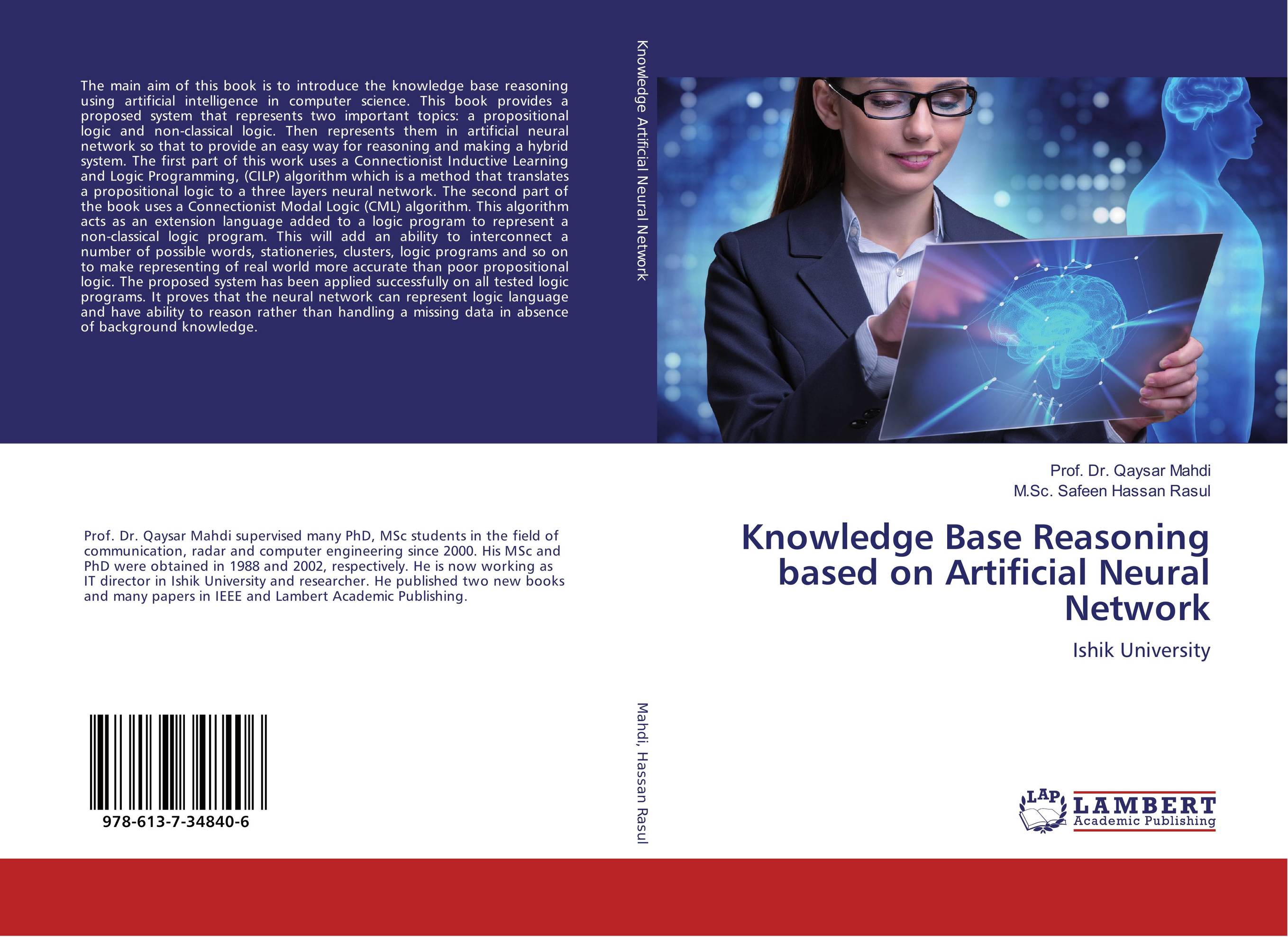| Поиск по каталогу |
|
(строгое соответствие)
|
- Профессиональная
- Научно-популярная
- Художественная
- Публицистика
- Детская
- Искусство
- Хобби, семья, дом
- Спорт
- Путеводители
- Блокноты, тетради, открытки
Knowledge Base Reasoning based on Artificial Neural Network. Ishik University

В наличии
| Местонахождение: Алматы | Состояние экземпляра: новый |

Бумажная
версия
версия
Автор: Prof. Dr. Qaysar Mahdi and M.Sc. Safeen Hassan Rasul
ISBN: 9786137348406
Год издания: 2018
Формат книги: 60×90/16 (145×215 мм)
Количество страниц: 104
Издательство: LAP LAMBERT Academic Publishing
Цена: 29611 тг
Положить в корзину
Позиции в рубрикаторе
Отрасли знаний:Код товара: 184001
| Способы доставки в город Алматы * комплектация (срок до отгрузки) не более 2 рабочих дней |
| Самовывоз из города Алматы (пункты самовывоза партнёра CDEK) |
| Курьерская доставка CDEK из города Москва |
| Доставка Почтой России из города Москва |
Аннотация: The main aim of this book is to introduce the knowledge base reasoning using artificial intelligence in computer science. This book provides a proposed system that represents two important topics: a propositional logic and non-classical logic. Then represents them in artificial neural network so that to provide an easy way for reasoning and making a hybrid system. The first part of this work uses a Connectionist Inductive Learning and Logic Programming, (CILP) algorithm which is a method that translates a propositional logic to a three layers neural network. The second part of the book uses a Connectionist Modal Logic (CML) algorithm. This algorithm acts as an extension language added to a logic program to represent a non-classical logic program. This will add an ability to interconnect a number of possible words, stationeries, clusters, logic programs and so on to make representing of real world more accurate than poor propositional logic. The proposed system has been applied successfully on all tested logic programs. It proves that the neural network can represent logic language and have ability to reason rather than handling a missing data in absence of background knowledge.
Ключевые слова: Artificial Intelligence, knowledge, Neural Networks Reasoning.



